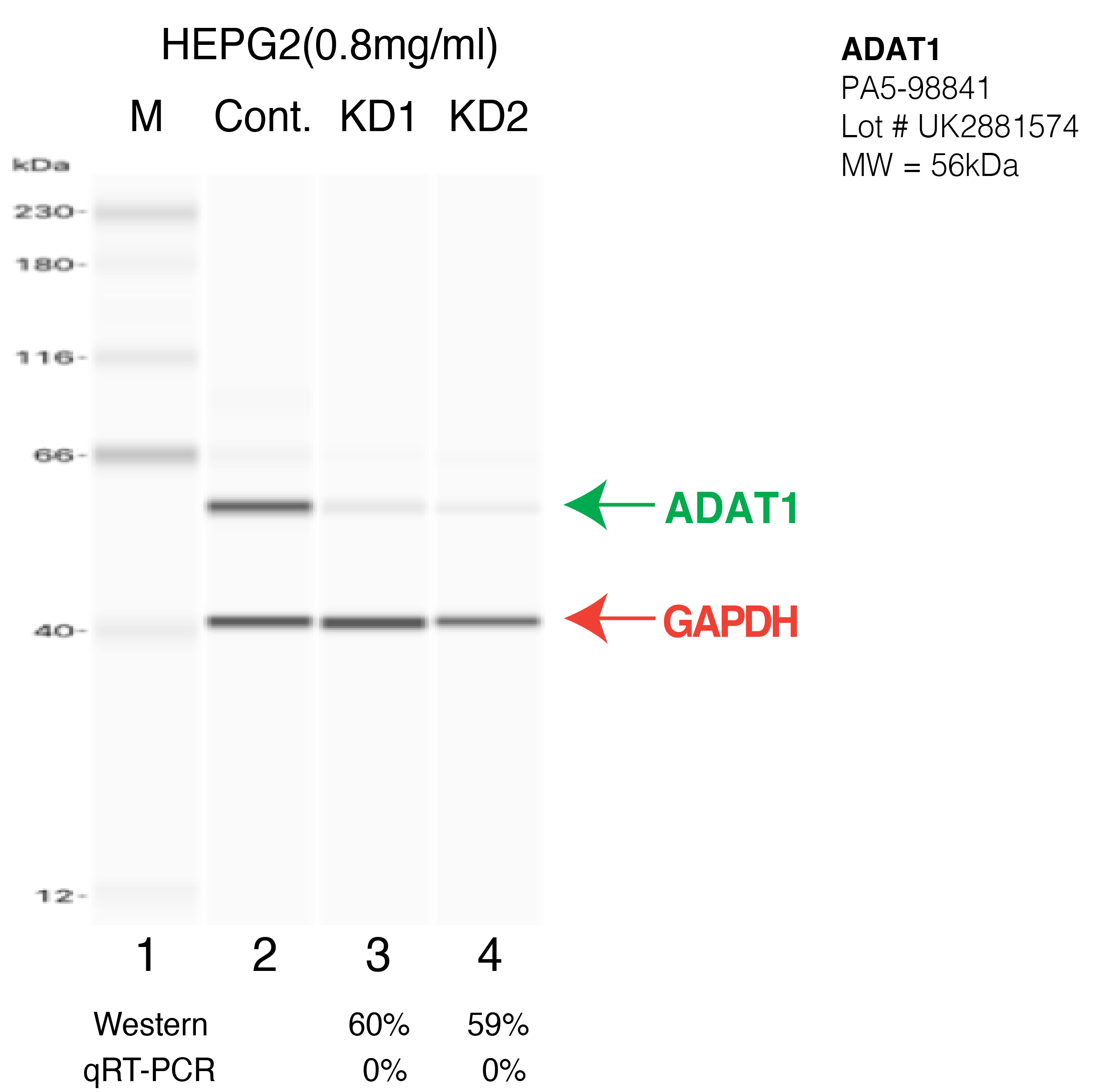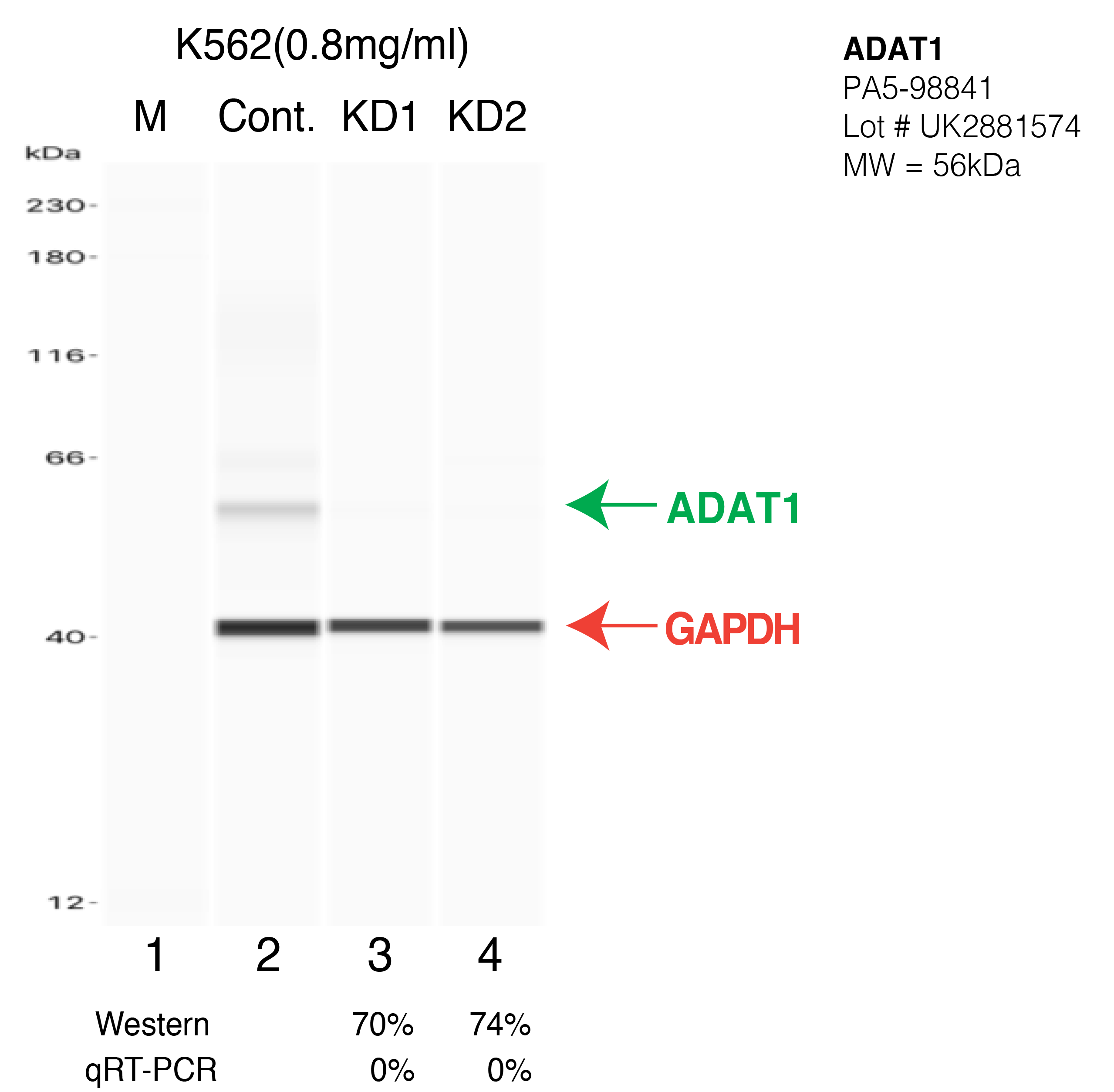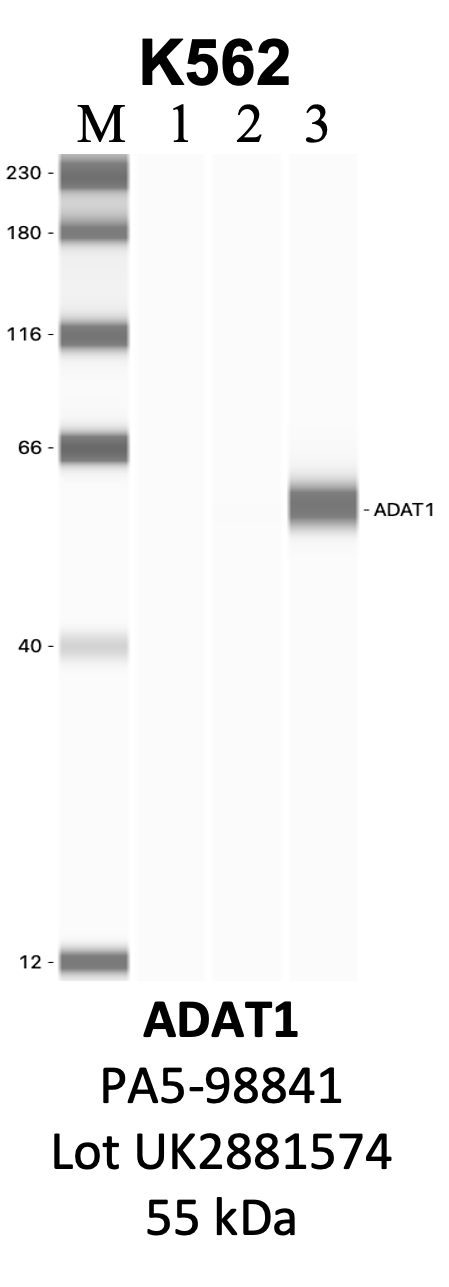ENCAB109YPJ
Antibody against Homo sapiens ADAT1
Homo sapiens
K562
characterized to standards
- Status
- released
- Source (vendor)
- Thermo Fisher
- Product ID
- PA5-98841
- Lot ID
- UK2881574
- Characterized targets
- ADAT1 (Homo sapiens)
- Host
- rabbit
- Antigen description
- Recombinant Human tRNA-specific adenosine deaminase 1 protein (1-501AA)
Characterizations
ADAT1 (Homo sapiens)
compliant
- Caption
- Western blot following CRISPR against ADAT1 in HepG2 whole cell lysate using ADAT1 specific antibody. Lane 1 is a ladder, lane 2 is HepG2 non-targeting control knockdown, lane 3 and 4 are two different CRISPR against ADAT1. ADAT1 protein appears as the green arrow, GAPDH serves as a control and appears in red arrow.
- Submitted by
- Xintao Wei
- Lab
- Brenton Graveley, UConn
- Grant
- U41HG009889
- Download
- ADAT1-HEPG2-CRISPR-PA5-98841.png
ADAT1 (Homo sapiens)
compliant
- Caption
- Western blot following CRISPR against ADAT1 in K562 whole cell lysate using ADAT1 specific antibody. Lane 1 is a ladder, lane 2 is K562 non-targeting control knockdown, lane 3 and 4 are two different CRISPR against ADAT1. ADAT1 protein appears as the green arrow, GAPDH serves as a control and appears in red arrow.
- Submitted by
- Xintao Wei
- Lab
- Brenton Graveley, UConn
- Grant
- U41HG009889
- Download
- ADAT1-K562-CRISPR-PA5-98841.png
ADAT1 (Homo sapiens)
K562
compliant
- Caption
- IP-WB analysis of K562 whole cell lysate using the ADAT1 specific antibody, PA5-98841. Lanes 1 and 2 are 2.5% of five million whole cell lysate input and 50% of IP enrichment, respectively, using a normal IgG antibody. Lane 3 is 50% of IP enrichment from five million whole cell lysate using the ADAT1-specific antibody, PA5-98841. The same antibody was used to detect protein levels via Western blot. This antibody passes preliminary validation and will be further pursued for secondary validation. *NOTE* Protein sizes are taken from Genecards.org and are only estimates based on sequence. Actual protein size may differ based on protein characteristics and electrophoresis method used.
- Submitted by
- Steven Blue
- Lab
- Gene Yeo, UCSD
- Grant
- U41HG009889


